7 start with O start with O

Psychoanalysis, entering its second century, is a vital yet divided discipline. A confusing array of mutually contradictory theories compete for the loyalty of clinicians and for the attention of all those interested in understanding human experience.
In the classic Object Relations in Psychoanalytic Theory, Jay Greenberg and his coauthor Stephen Mitchell brought clarity to the confusion surrounding psychoanalytic disputes. They defined two competing models: the drive model, which addresses the private dimensions of experience; and the relational model, which reveals the relentlessly social aspect of our lives. Oedipus and Beyond builds on Greenberg’s earlier contribution. Beginning with a brilliant critique of the conceptual framework of psychoanalysis, he provides fresh insight into Freud’s theory, demonstrating how attempts to resolve some of its shortcomings have generated their own theoretical and clinical dilemmas. In the process he illuminates the roles of the Oedipus complex, the drives, the unconscious, and psychic structure in shaping the sensibilities of alternative psychoanalytic approaches.
Greenberg does not attempt to synthesize the two models, because he believes that diversity is essential if psychoanalysis is to remain strong. Instead, he proposes a compelling and practical clinical theory in which Freud’s insistence on the importance of inner motivation, psychic conflict, and personal agency effectively informs a relational emphasis on the fundamental influence of social living.
The book concludes with some apt illustrations of how the “representational model” can enrich clinical work. Greenberg rethinks the process of making the unconscious conscious, and arrives at new approaches to the analyst’s neutrality, to transference analysis, and to countertransference. The result reflects the author’s profound insight into the structure of psychoanalytic theory and his mastery of the contributions of diverse psychoanalytic schools. Perhaps most important, Greenberg’s argument never loses touch with his clinical experience; ultimately, this is the deeply personal statement of a skilled practitioner.
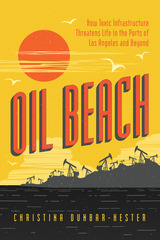
San Pedro Bay, which contains the contiguous Ports of Los Angeles and Long Beach, is a significant site for petroleum shipping and refining as well as one of the largest container shipping ports in the world—some forty percent of containerized imports to the United States pass through this so-called America’s Port. It is also ecologically rich. Built atop a land- and waterscape of vital importance to wildlife, the heavily industrialized Los Angeles Harbor contains estuarial wetlands, the LA River mouth, and a marine ecology where colder and warmer Pacific Ocean waters meet. In this compelling interdisciplinary investigation, award-winning author Christina Dunbar-Hester explores the complex relationships among commerce, empire, environment, and the nonhuman life forms of San Pedro Bay over the last fifty years—a period coinciding with the era of modern environmental regulation in the United States. The LA port complex is not simply a local site, Dunbar-Hester argues, but a node in a network that enables the continued expansion of capitalism, propelling trade as it drives the extraction of natural resources, labor violations, pollution, and other harms. Focusing specifically on cetaceans, bananas, sea birds, and otters whose lives are intertwined with the vitality of the port complex itself, Oil Beach reveals how logistics infrastructure threatens ecologies as it circulates goods and capital—and helps us to consider a future where the accumulation of life and the accumulation of capital are not in violent tension.
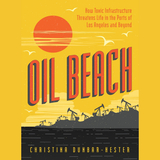
Can the stories of bananas, whales, sea birds, and otters teach us to reconsider the seaport as a place of ecological violence, tied to oil, capital, and trade?
San Pedro Bay, which contains the contiguous Ports of Los Angeles and Long Beach, is a significant site for petroleum shipping and refining as well as one of the largest container shipping ports in the world—some forty percent of containerized imports to the United States pass through this so-called America’s Port. It is also ecologically rich. Built atop a land- and waterscape of vital importance to wildlife, the heavily industrialized Los Angeles Harbor contains estuarial wetlands, the LA River mouth, and a marine ecology where colder and warmer Pacific Ocean waters meet. In this compelling interdisciplinary investigation, award-winning author Christina Dunbar-Hester explores the complex relationships among commerce, empire, environment, and the nonhuman life forms of San Pedro Bay over the last fifty years—a period coinciding with the era of modern environmental regulation in the United States. The LA port complex is not simply a local site, Dunbar-Hester argues, but a node in a network that enables the continued expansion of capitalism, propelling trade as it drives the extraction of natural resources, labor violations, pollution, and other harms. Focusing specifically on cetaceans, bananas, sea birds, and otters whose lives are intertwined with the vitality of the port complex itself, Oil Beach reveals how logistics infrastructure threatens ecologies as it circulates goods and capital—and helps us to consider a future where the accumulation of life and the accumulation of capital are not in violent tension.
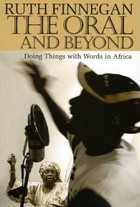
The Oral and Beyond looks simultaneously backwards and forwards, reviewing and critiquing the achievements of scholarship on African oral literature, revisiting issues of perennial contention, and highlighting some of the most interesting new ideas and approaches in the field. Exploring such fundamental questions as how texts and textuality relate to performance, how ideology inflects language, and how traditional forms adapt to modern media and popular culture, Finnegan essentially crafts an intellectual history of her field. At the same time, she propels the ethnography of language forward, bringing the techniques and knowledge developed through her fieldwork in Africa to bear on issues that transcend African studies and reach into the larger world of anthropology and beyond.
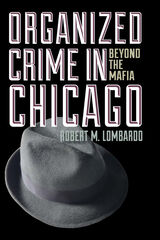
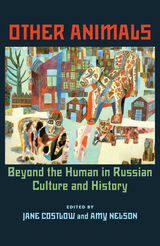
Four themes run through the volume: the prevalence of animals in utopian visions; the ways in which Russians have both incorporated and sometimes challenged Western sensibilities and practices, such as the humane treatment of animals and the inclusion of animals in urban domestic life; the quest to identify and at times exploit the physiological basis of human and animal behavior and the ideological implications of these practices; and the breakdown of traditional human-animal hierarchies and categories during times of revolutionary upheaval, social transformation, or disintegration.
From failed Soviet attempts to transplant the semi-nomadic Sami and their reindeer herds onto collective farms, to performance artist Oleg Kulik’s scandalous portrayal of Pavlov’s dogs as a parody of the Soviet “new man,” to novelist Tatyana Tolstaya’s post-cataclysmic future world of hybrid animal species and their disaffection from the past, Other Animals presents a completely new perspective on Russian and Soviet history. It also offers a fascinating look into the Russian psyche as seen through human interactions with animals.
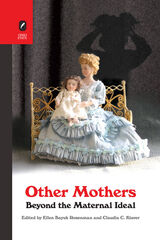
This collection addresses this void, revealing the extraordinary diversity of Victorian motherhood. Exploring diaries, novels, and court cases, with contexts ranging from London to Egypt to Australia, these varied accounts take the collection “beyond the maternal ideal” to consider the multiple, unpredictable ways in which motherhood was experienced and imagined in this formative historical period.
Other Mothers joins revisionist approaches to femininity that now characterize Victorian studies. Its contents trace intersections among gender, race, and class; question the power of separate spheres ideology; and insist on the context-specific nature of social roles. The fifteen essays in this volume contribute to the fields of literary criticism, history, cultural studies, and history.
READERS
Browse our collection.
PUBLISHERS
See BiblioVault's publisher services.
STUDENT SERVICES
Files for college accessibility offices.
UChicago Accessibility Resources
home | accessibility | search | about | contact us
BiblioVault ® 2001 - 2024
The University of Chicago Press









